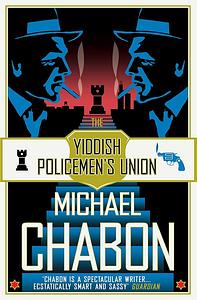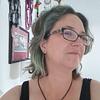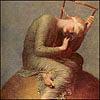Take a photo of a barcode or cover
Well, so much for [b:Winter Study|2039223|Winter Study (Anna Pigeon, book 14)|Nevada Barr|http://ecx.images-amazon.com/images/I/51AKEa-ex4L._SL75_.jpg|2044086] being my last mystery for a while.
But, besides for both falling under that broad category, these are very different books. The Yiddish Policemen's Union is about redemption and making the best that you can of an imperfect, and often scary and broken, world.
It's written with Chabon's wonderful clarity, humor, drama and lush style. It's wonderful fun to read, thought-provoking and hard to put down. His characters are real, flawed, and the kind of people you'd like to have dinner with. I can't think of better things to say about a book.
But, besides for both falling under that broad category, these are very different books. The Yiddish Policemen's Union is about redemption and making the best that you can of an imperfect, and often scary and broken, world.
It's written with Chabon's wonderful clarity, humor, drama and lush style. It's wonderful fun to read, thought-provoking and hard to put down. His characters are real, flawed, and the kind of people you'd like to have dinner with. I can't think of better things to say about a book.
Detective fiction is not my genre but I did enjoy the book. The idea of a Jewish Sitka is fully realized and I appreciated that the story takes place firmly situated inside a worldview and culture that is not my own. The book regularly repeats the phrase "it is strange times to be a Jew," and I enjoyed thinking about what that means in this alternate world and our own. I had some difficulty following the action and the plot towards the end but I enjoyed the characters. I don't think I will forget Mendele any time soon.
A classic Chabon offering but lacking the emotional depth of "The Amazing Adventures of Kavalier & Clay".
I wanted to like this book so much more than I did. The premise is interesting, the story itself done very well, the characters written amazingly. But the actual writing itself is just too much. It may be the most overly dense book I have ever read
2.5 stars
I listened to this on audio which was a mistake because so much Yiddish is spoken without a lot of reference to what the definition is in English that it's hard to follow. I'm told the physical book has a dictionary to reference. I didn't know going into the story that this was an alternative history, so I was also confused by what was happening most of the beginning. I'm not a fan of noir or hard-boiled mystery, and this felt like the style in which it was written or at least an homage to these styles. That being said, I still like Michael Chabon's voice, so the story wasn't terrible....just not my cup of tea.
I listened to this on audio which was a mistake because so much Yiddish is spoken without a lot of reference to what the definition is in English that it's hard to follow. I'm told the physical book has a dictionary to reference. I didn't know going into the story that this was an alternative history, so I was also confused by what was happening most of the beginning. I'm not a fan of noir or hard-boiled mystery, and this felt like the style in which it was written or at least an homage to these styles. That being said, I still like Michael Chabon's voice, so the story wasn't terrible....just not my cup of tea.
An alternate history in which four million Jews were saved from the Holocaust and relocated in Alaska--but who are about to have their home taken away again. And, oh yeah, some guy gets shot in the head.
I was expecting this to be a mystery, but it really wasn't. There IS a mystery, but it's not the point around which the plot turns. This is a sci fi/alternate history book, and the resolution of the plot revolves around those events instead. I'm not sure how to feel about that. The resolution to the mystery was there, but weak, and throughout the book the search for answers was pushed to the forefront but at every turn made in a confusing and wow-did-you-not-give-me-enough-information-for-fair-play manner. But the alternate history aspects, which lurk in the background until the last minute, are great. A three star mystery with a five star alternate history to support it, I guess. I loved the characters; they were what pulled me through.
The language was confusing; you're expected to be proficient with a bunch of terms in Yiddish that are in a glossary in the back, but the existence of the glossary wasn't mentioned in my edition, so I didn't find the glossary until too late, and the glossary would not have made much of a difference anyway, because whole plot points turn on subtle shades of meaning that aren't covered in the glossary. And chess. Unless you're a chess master, don't expect to even remotely be able to solve the mystery.
I felt like this was a book written for someone else, and I wasn't welcome--but also that the book wouldn't have been as good on the alternate history front if it were. So I'll call this a book of tradeoffs, and, well, I won't be far wrong thematically, either. On the whole, I'm glad I finally read it.
Recommended if you like alternate history. But take care if you're primarily a mystery reader.
I was expecting this to be a mystery, but it really wasn't. There IS a mystery, but it's not the point around which the plot turns. This is a sci fi/alternate history book, and the resolution of the plot revolves around those events instead. I'm not sure how to feel about that. The resolution to the mystery was there, but weak, and throughout the book the search for answers was pushed to the forefront but at every turn made in a confusing and wow-did-you-not-give-me-enough-information-for-fair-play manner. But the alternate history aspects, which lurk in the background until the last minute, are great. A three star mystery with a five star alternate history to support it, I guess. I loved the characters; they were what pulled me through.
The language was confusing; you're expected to be proficient with a bunch of terms in Yiddish that are in a glossary in the back, but the existence of the glossary wasn't mentioned in my edition, so I didn't find the glossary until too late, and the glossary would not have made much of a difference anyway, because whole plot points turn on subtle shades of meaning that aren't covered in the glossary. And chess. Unless you're a chess master, don't expect to even remotely be able to solve the mystery.
I felt like this was a book written for someone else, and I wasn't welcome--but also that the book wouldn't have been as good on the alternate history front if it were. So I'll call this a book of tradeoffs, and, well, I won't be far wrong thematically, either. On the whole, I'm glad I finally read it.
Recommended if you like alternate history. But take care if you're primarily a mystery reader.
There is a lot of Yiddish phrases and vocab which made it a little hard to read, not gonna lie. But Chabon's storytelling combined with the mystery element and an unique setting proved to be a winning combo.
Still currently reading. Actually, it has been nice- I take a break but I can get immediately back into this one. I will be finishing it in the next week, however.
Recommended by Steve Bloomberg. Will probably go back to.
It took me two tries to get through the first third, but once I settled into the stylised writing, I enjoyed the noir pastiche.





